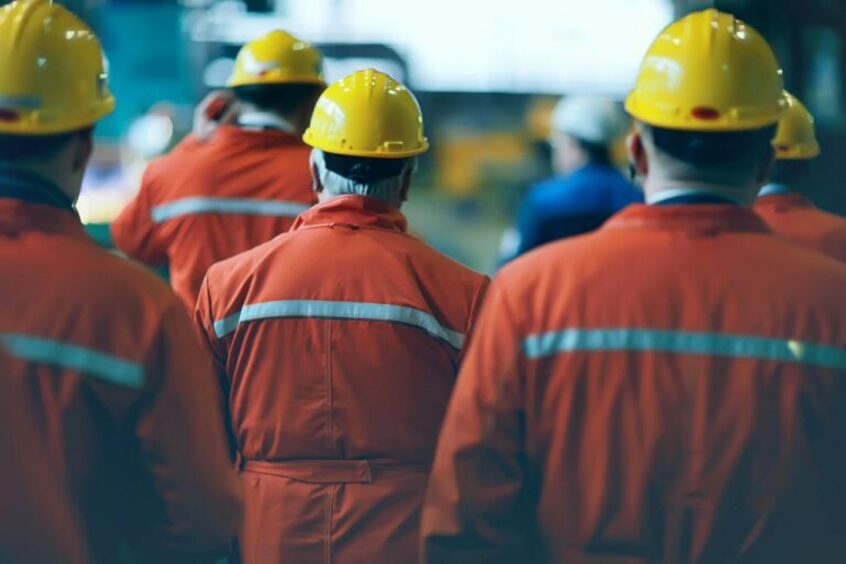
The safety of those working offshore is never far from people’s minds. But with the news several North Sea operators have been warned by the Health and Safety Executive following a spate of issues, the wellbeing of the workforce was brought into sharp focus.
Nearly 30 inspection letters from the Health and Safety Executive (HSE) were issued to companies between October and the publishing of the report last month, highlighting issues across 15 platforms, including thousands of hours of “safety-critical” work left outstanding.
There is no suggestion whatsoever of any deliberate ignoring of their requirements from any of the companies involved, but it does highlight the need to be on top of safety.
While action is being – or has been – taken, it is crucial from a safety and reputation perspective that things don’t reach the point where HSE inspectors are serving your firm with official notices.
Yes, there are elements in all jobs where the repercussions of getting things done quickly will be minimal, but when it comes to safety, the results can be fatal, particularly in the marine and offshore industry. Something as straightforward as following a request to service a piece of equipment can start a chain reaction that has awful results.
Phrases such as ‘we need to get this done’, ‘we need to meet a budget’ and ‘we need to get this turned around quickly’ are often heard around many workplaces across multiple industries, not just energy.
And on occasion, they’re perfectly valid. But not when it comes to critical lifesaving equipment.
There are a worrying number of kit services in the oil and gas sector not being carried out by people who are properly trained and compliant to do so. And that goes across a range of items including life jackets, breathing apparatus kits and gas detection systems.
It can be difficult for workers to say ‘no’ to those in higher up roles, but in some situations it is essential.
It is about doing the right thing. Because if something fails, workers can die. They have one chance at life. Why put that at risk?
The user, their family, friends and colleagues are relying on you to ensure their safety.
You wouldn’t get a car mechanic round to service your boiler at home or get a hospital consultant to put your arm in a sling. There’s no doubt both possess a core understanding of what’s required, but they would only have a vague idea and won’t be at the same level as a plumber or a nurse.
A vague idea isn’t good enough, so why would you do something similar with your offshore stock?
Health and Safety Executive regulations state companies “… should ensure that the person carrying out a thorough examination has such appropriate practical and theoretical knowledge and experience of the equipment to be thoroughly examined as will enable them to detect defects and to assess their importance in
relation to the safety and continued use of the … equipment.”
It is not a grey area, and it doesn’t matter what you think of the legislation. It’s the law.
We have to deal with the consequences if we drive above the speed limit, and the same can be said in this situation.
While it can often be quicker and cheaper to get the kit serviced by the first organisation that comes along, due to the technician or the equipment used not being approved by the manufacturer, the service will be invalid, likely ruin the integrity of kit, and could well ruin lives.
Imagine the reaction if the fire service weren’t servicing their breathing apparatus kits properly. Not only would they be putting themselves at risk, the same would be said about those they’re trying to help.
The oil and gas industry should be held to the same standard.
It is not okay to assume the health and safety department have taken care of things or the procurement department has done what’s necessary. Safety is the priority, and it starts with you.
Should an incident lead to an investigation from the HSE, they will look back at the equipment’s safety record to see when it was serviced and by whom.
That means that not only is the onus on companies to ensure the work is done to the appropriate standard, but service engineers are also culpable. If someone is asked to service a piece of kit that they are not qualified to do, they shouldn’t be doing it.
They are putting the user’s life on the line, as well as their own future.
It’s easy to check if the gas engineer you want to come round to your house is on the Gas Safe Register, and it’s just as simple to establish if a company or individual is licensed to service your oil and gas equipment.
All it takes is a phone call or email to a company such as Dräger Marine & Offshore. We are able to check the national database to see if technicians have been trained to the required standard. We are also able to train people to be able to service and maintain Dräger kit. It’s those that have no training whatsoever that are really dangerous.
There are people all over the UK from Dräger who can go to any port in the country to carry out services. We have technicians available to visit vessels at quaysides, as well as go offshore to check equipment on other assets.
With a large level of stock available to purchase and hire from our Aberdeen centre, we are also able to supply items through a service exchange to allow operations to continue while the kit is examined.
There are a variety of different ways to ensure equipment is safe to use, it’s about ensuring that is done – to protect users and provide them with the best possible chance of surviving an incident.
They are relying on you. And so are their families.
Recommended for you
